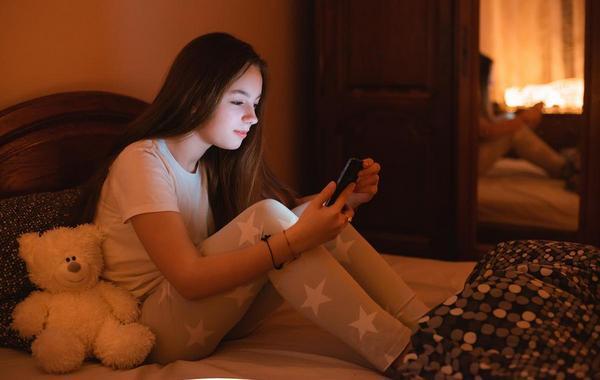
Teens Spend More Time With Screens
One of the biggest problems is that there are more and more screens in our daily lives. Even a teen that forsakes the smartphone and cracks a book rather than opens Netflix, or is compelled to thanks to parental control apps, is still likely going to spend some of their school day, and do some of their homework, in front of a tablet or laptop. If they’ve got a job, they probably need to use certain apps to get their paycheck and schedule shifts. And of course, even the most phone-averse people get texts from friends.
However, excessive screen use may be knocking our rhythms off-balance, and teens are particularly vulnerable. Research is also showing that exercise is important for healthy teens to become healthy adults. So how do we balance screens, sleep, and exercise?
Create A Family Plan
It helps when the whole family is on board, so develop a plan for the whole family, such as phones off after a certain hour of the day, a certain amount of time set aside for family activities like hiking or cycling, and a commitment to get to bed at a reasonable hour. That way, everyone is supporting everyone, making it easier to stick with it.
If you’re confronted with some skepticism, simply turn to the science. There’s plenty of evidence that certain types of social media use, using phones late in the evening, and other aspects of screens can be damaging to our mental health and our sleep schedules.Sometimes teens forget that being with others in person is better than texting.

Encourage Non-Screen Activities
Teens often need activities for more than just working out. Spending time in a group activity, especially a team-oriented one, builds social skills and emotional intelligence. Encourage your kids to pick a physical activity they like, whether it’s a team sport or a club that volunteers outside, and the screens will usually stay tucked away on their own.
Limit Unnecessary Screen Time
There are times of the day where screens just need to be put away. Nobody should be checking their phone at dinner, during family walks, or when they should be doing chores. Parental control apps can be used to enforce these standards by setting certain times when the phone is off, period, or by limiting what apps can be used at what times, and what they do. That way homework time doesn’t become video game or chatting with friends time.
Screens will be a part of our lives no matter what. Smartphones and laptops are simply too useful for us to throw them out completely. But we can use them in unhealthy ways early on, and form habits that are hard to break, so teaching our kids now to treat them carefully will pay off when they’re adults. To learn more about how parental control software can help, sign up for Screen Time, risk-free.

Join the conversation